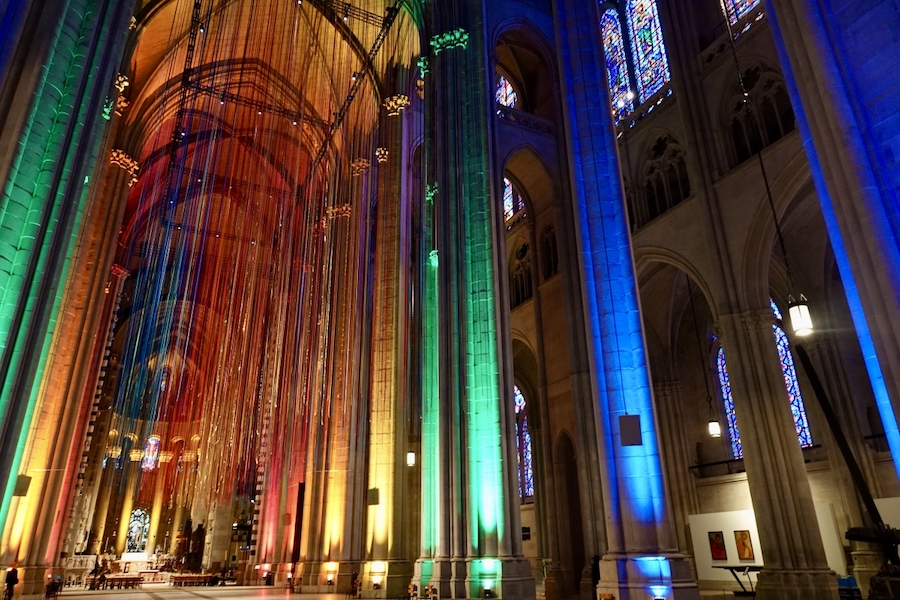 Wilbur Coleman Sweatman, February 7, 1882 – March 9, 1961, Harlem, New York, was an African-American ragtime and dixieland jazz composer, bandleader, and clarinetist. Sweatman was one of the first African-American musicians to have fans nationwide. He was also a trailblazer in the racial integration of musical groups.
Wilbur Coleman Sweatman, February 7, 1882 – March 9, 1961, Harlem, New York, was an African-American ragtime and dixieland jazz composer, bandleader, and clarinetist. Sweatman was one of the first African-American musicians to have fans nationwide. He was also a trailblazer in the racial integration of musical groups.
Sweatman was born February 7, 1882 in Brunswick, Missouri to parents Matilda and Coleman Sweatman. Wilbur’s father ran a barbershop in the riverside town to provide for his family, which also included daughters Eva and Lula. His mother was apparently of mixed racial background as she and the children were listed as mulatto on some census reports. While Wilbur was still a toddler his father abandoned the family, moving to St. Joseph, Missouri and starting a new family. His mother persevered, continuing to operate the barbershop as well as taking in boarders. Wilbur received his education at the segregated Elliott School in Brunswick and helped out around the barbershop after school. His older sister Eva was responsible for much of Wilbur Sweatman’s early music training, teaching him to play piano. Later Sweatman would become a self-taught violinist, and then taking up the clarinet. Over the years he would also learn to play trombone, bass clarinet and organ.
Wilbur Sweatman’s professional music career began in the late 1890s when, still a teenager, he toured with circus bands, first with Professor Clark Smith’s Pickaninny Band from Kansas City, then with the P.G. Lowery Band. By 1901 he had become the youngest orchestra leader in America by fronting the Forepaugh and Sells Circus band. Sweatman briefly played with the bands of W.C. Handy and Mahara’s Minstrels before organizing his own dance band in Minneapolis, Minnesota by late 1902. It was there that Sweatman made his first recordings on phonograph cylinders in 1903 for the Metropolitan Music Store. These included what is reputed to have been the first recorded version of Scott Joplin‘s “Maple Leaf Rag“; no copies of these are known to exist today. In 1908 Sweatman moved to Chicago, playing around the city in places like the Pekin Inn and the Monogram Theater before becoming the bandleader at the Grand Theater, and began to attract notice; a 1910 article referred to his nickname, “Sensational Swet.”
By 1911, he had moved to the vaudeville circuit full-time, developing a successful act of playing three clarinets at once. An Indianapolis account described his performance there:
Though somewhat diminutive in stature, Wilbur C. Sweatman has a style and grace of manner in all of his executions that is at once convincing, and the soulfulness of expression that he blends into his tones is something wonderful. His first number was a medley of popular airs and “rags” and had everybody shuffling their pedal extremities before it was half over.
He wrote a number of rags, 1911’s “Down Home Rag” being the most commercially successful. The song was recorded by multiple bands in America and Europe. Sweatman moved to New York in 1913, touring widely. He was one of the few black solo acts to appear regularly on the major white vaudeville circuits. Around this time he became close friends with Scott Joplin; Joplin’s will would name Sweatman as executor of his estate. Joplin’s musical papers, including unpublished manuscripts, were willed to Sweatman, who took care of them while generously sharing access to those who inquired. However, as Joplin’s music came to be considered passé, such requests were few. After Sweatman’s death in 1961, the papers were last known to have gone into storage during a legal battle among Sweatman’s heirs; their current location is unknown, nor even whether they still exist.
In December 1916, Sweatman recorded for minor label Emerson Records, including his own “Down Home Rag”. Some historians consider these recordings among the earliest examples of jazz on record. Taking note of the commercial success of the Original Dixieland Jass Band and the Original Creole Orchestra, Sweatman abruptly changed his sextet’s sound and instrumentation in early 1917. Sweatman’s band consisted of five saxophonists and himself on clarinet, a combo which soon signed with Pathé. They recorded rags, as well as some of the hit songs of the day.
Sweatman was the first African American to make recordings labeled as “[easyazon_link identifier=”0998643114″ locale=”US” tag=”harlemworld-20″]Jass[/easyazon_link]” and “Jazz”. Since Sweatman can be heard making melodic variations even in his 1916 recordings, it might be argued that Sweatman recorded an archaic type of jazz earlier than the [easyazon_link identifier=”B000F5GHIY” locale=”US” tag=”harlemworld-20″]Original Dixieland band[/easyazon_link]. In 1917, he became one of the first blacks to join ASCAP.
In 1918, Sweatman landed with major label Columbia Records, where he would enjoy a meteroic success with a wide variety of songs under his own name. His band also delivered several shorter anonymous performances for the label’s “Little Wonder” line of 90-second-long budget releases. The Sweatman band’s first release, “[easyazon_link identifier=”B00B0EORAE” locale=”US” tag=”harlemworld-20″]Regretful Blues[/easyazon_link]”/”[easyazon_link identifier=”B00125W9ZG” locale=”US” tag=”harlemworld-20″]Everybody’s Crazy[/easyazon_link]” would ship 140,000 copies, in a time when a third as many sales was considered a hit. Sweatman singles shipped over a million copies in 1919 alone. Several more successful releases followed in 1918-19, Sweatman’s peak of popularity. His best-selling song was 1919’s “Kansas City Blues”, which shipped 180,000 copies. However, by 1920, sales were on the wane, perhaps reflecting the ephemeral interest in his novelty style of jazz, and the growing popularity of syncopated big bands such as Columbia’s own Ted Lewis.
Sweatman continued to ply his somewhat dated style in live appearances throughout the Northeast. Several notable musicians passed through his band, including Duke Ellington, Coleman Hawkins, and Cozy Cole. Sweatman also continued to record for such labels as Gennett, Edison, Grey Gull, and Victor. Sweatman frequently played at the well known Harlem club Connie’s Inn. He continued playing in New York through the 1940s and early 1950s, but increasingly concentrated his efforts on the music publishing business and talent booking. His earlier compositions provided Sweatman a steady income. In 1937 alone, ASCAP reported that “Down Home Rag” had been played on the radio over 2,000 times, with Sweatman receiving royalties for each play.
Wilbur Sweatman died in New York City on March 9, 1961. His daughter Barbara initially inherited his estate, consisting mostly of his publishing business and some personal papers. However the estate, which included the papers of Scott Joplin as well, eventually ended up with Sweatman’s sister Eva.
Related articles
- Harlem/Havana Music & Cultural Festival From Harlem, New York And Cuba (harlemworldmag.com)
Become a Harlem Insider!
By submitting this form, you are consenting to receive marketing emails from: Harlem World Magazine, 2521 1/2 west 42nd street, Los Angeles, CA, 90008, https://www.harlemworldmagazine.com. You can revoke your consent to receive emails at any time by using the SafeUnsubscribe® link, found at the bottom of every email. Emails are serviced by Constant Contact








